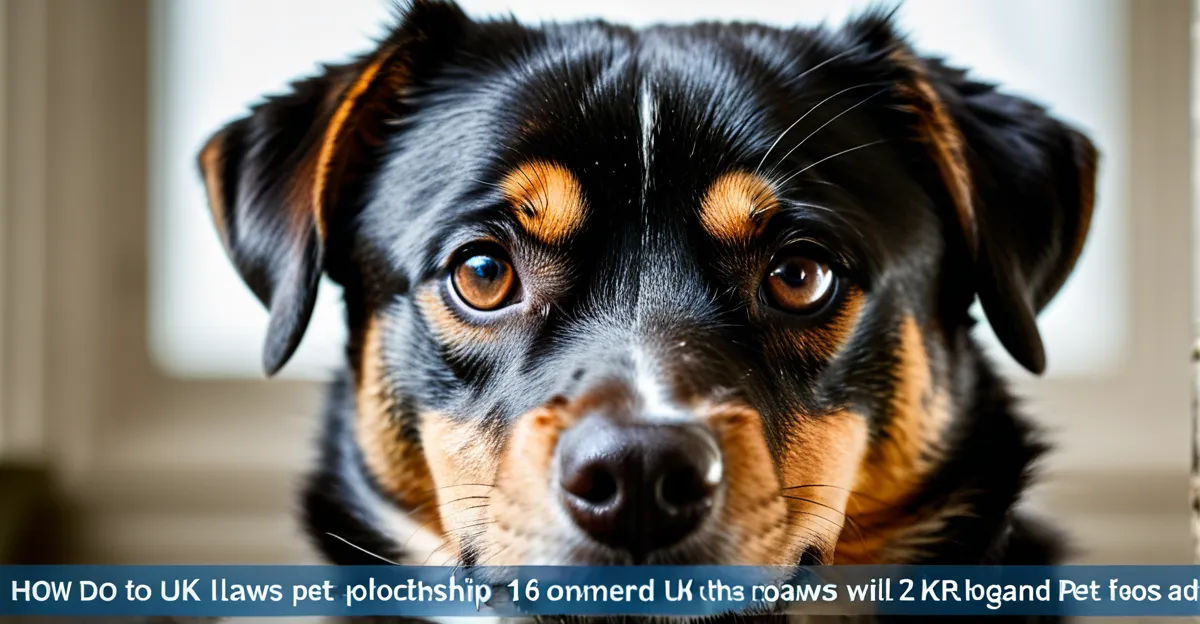Key UK Pet Ownership Laws and Legal Standards
Understanding UK pet laws is essential for every pet owner to ensure compliance and promote animal welfare. The cornerstone legislation is the Animal Welfare Act 2006, which sets out clear legal obligations for pet owners. This Act mandates that owners provide suitable environments, diets, and protection from pain, suffering, injury, and disease. It defines a legal duty of care, meaning pet owners are accountable for maintaining their animals’ well-being at all times.
The Act also empowers enforcement agencies to intervene when pets are neglected or mistreated. Beyond this, owners must keep up to date on any evolving legal standards related to pet ownership, as laws may change to improve welfare or public safety.
Topic to read : What are the essential pet supplies for UK residents?
Compliance with these laws not only safeguards pets but also protects owners from legal penalties. Failure to meet the requirements of the Animal Welfare Act 2006 can result in fines, disqualification from ownership, or even imprisonment. Consequently, knowing your legal obligations for pet owners under UK law is crucial to responsibly care for your pet and avoid avoidable legal issues.
Registration, Microchipping, and Identification Requirements
Microchipping laws in the UK mandate mandatory microchipping for dogs and, in some areas, cats. The pet registration UK rules require owners to have pets microchipped by a set age, usually before they reach 8 weeks old or within a short timeframe after acquiring the pet. This microchip must be registered with a recognized database to ensure the pet’s identity can be verified if lost or stolen.
Have you seen this : What are the UK laws on exotic pet ownership?
Failure to comply with these pet identification rules can lead to fines and other enforcement actions. Local authorities are empowered to issue penalties for unchipped or unregistered pets, reflecting the seriousness of maintaining proper identification.
Besides microchipping, owners should keep registration details current to avoid legal complications. Correct pet registration UK procedures also enable quick reunification with pets in cases of stray or emergencies, thereby enhancing animal welfare.
The legislation’s rationale is clear: identifying pets via microchips and databases supports responsible ownership while protecting animal safety. Understanding and following these microchipping laws is vital to meeting your legal obligations for pet owners and avoiding avoidable penalties under UK pet laws.
Banned Breeds and Dangerous Dog Legislation
Understanding banned dog breeds UK is vital to comply with the Dangerous Dogs Act and avoid serious legal trouble. This legislation restricts specific breeds deemed a risk to public safety. Examples include the Pit Bull Terrier, Japanese Tosa, Dogo Argentino, and Fila Brasileiro. Ownership of these banned breeds is illegal unless specific exemptions apply.
The Dangerous Dogs Act enforces strict measures to control and prevent attacks. Owners of banned or restricted dogs must follow conditions such as muzzling in public, securing dogs in safe environments, and sometimes obtaining exemption certificates. Failure to adhere to the breed-specific legislation can lead to fines, seizure of the dog, and even imprisonment.
If you own a dog falling under this legislation, it’s essential to understand fully your legal obligations for pet owners. Local authorities actively monitor compliance, and dealing with these regulations proactively helps protect public safety while ensuring you stay within the law.
Remaining informed on any updates to the banned dog breeds UK list or changes to the Dangerous Dogs Act is critical for responsible ownership and avoiding inadvertent breaches of these important UK pet laws.




